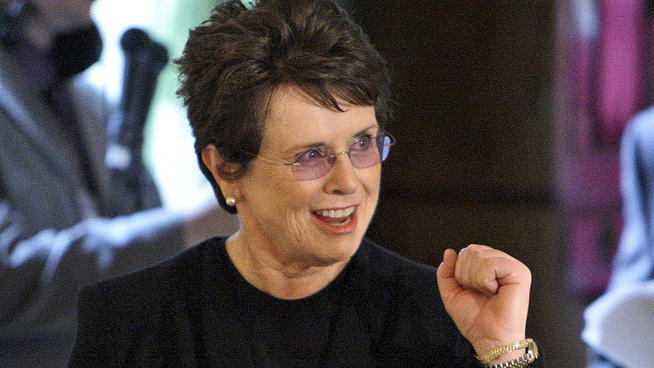
Is It the End of ENDA?

The Federal Employment Non-Discrimination Act’s Spotty History
by David-Elijah Nahmod
To many, the Employment Non-Discrimination Act used to be a no-brainer. The proposed federal law would prohibit discrimination in hiring and employment on the basis of sexual and/or gender identity in companies with 15 or more employees. First introduced in 1994, ENDA has failed to pass 19 attempts to codify it into law.
From the start, there was fierce opposition from religious conservatives, who feared that they would be forced to hire LGBT people in their businesses. Organizations such as the fiercely antigay American Family Association stated that there was “no real problem with discrimination against homosexuals.” The Traditional Values Coalition expressed concern that, if passed, ENDA would force schools to hire transgender teachers. Former President George W. Bush made it clear that he would veto the bill if it ever passed.
Even louder was the initial chorus of disapproval from the transgender community. Transgender protections were not included in the proposed law until 2007.
The Human Rights Campaign took a lot of heat for talking out of both sides of its mouth. Writing for the online Huffington Post, Rebecca Juro reports that in 2007, former HRC Executive Director Joe Solomonese assured a gathering of transgender people at the Southern Comfort Conference that his organization would support an all-inclusive ENDA. About ten days later, HRC announced that it would neither support nor oppose the trans-inclusive ENDA introduced that year by former congressman Barney Frank.
“I regularly pray for LGBT individuals who work in oppressive environments that cause them to endure life in the closet,” said Rev. Megan Rohrer, the pastor of Grace Lutheran Church in San Francisco. Rev. Rohrer is the first openly transgender pastor to be installed as the leader of a Lutheran congregation. “I long for the day when we can stop begging for tolerance and all people can be celebrated and respected where they live, work, and worship.”
It’s been a bumpy road for ENDA, and the ride is still not over. In July, the National Gay and Lesbian Task Force announced that it would no longer support ENDA in its current form as a result of the U.S. Supreme Court’s recent Hobby Lobby decision. The Court’s June 30 ruling allows businesses to cite “religious grounds” as a reason for refusing to cover certain contraceptive healthcare procedures for its female employees—benefits that are mandated under the Affordable Care Act. Many now fear that businesses will be able to circumvent other federal laws on “religious grounds.”
Title VII, an amendment to the 1964 Civil Rights Act that prohibits employment discrimination on the basis of race, color, religion, national origin, and sex, has no similar sweeping religious exemptions.
“We opposed the religious exemption in ENDA because it was far broader than the religious exemption already in place [in Title VII],” said Erik Olvera of the National Center for Lesbian Rights. “We do not support any legislation that will create broader exemptions for LGBT people than exists for other groups. We need legislation that protects both sexual orientation and gender identity without providing a license to discriminate. A previous version of ENDA did not include gender identity. That grievous mistake has been rectified, and now we must fight to eliminate the current overly broad religious exemption from ENDA.”
Last month, Lambda Legal, the American Civil Liberties Union, and the National Center for Lesbian Rights also announced that they could no longer support ENDA in its current form.
“Over the past year, the public conversation and context regarding religious exemptions to nondiscrimination laws has evolved significantly,” said Kris Hayashi, deputy director of the Transgender Law Center. “As a result, we announced over a month ago that we were unable to support ENDA in its current form. Soon after, we joined with the ACLU, GLAAD, Lambda Legal, and NCLR in issuing a statement reiterating this position. We remain committed to continuing to work for the passage of a law like ENDA that has no exemption for religious organizations any broader than the exemption that already exists in Title VII.”
On Tuesday, July 22, openly gay Rep. Jared Polis, the lead sponsor of ENDA in the House of Representatives, quietly introduced a bill that might narrow ENDA’s religious exemption. As currently written, religious organizations, religious schools, and houses of worship would be completely exempt from ENDA rules. There is a further ENDA provision—which would allow religious organizations and schools to require employees and students to conform to required religious tenets—that would bar the inclusion of LGBT people.
“Our community is open to the most basic shared values that we must leave no one behind in our pursuit for civil and lived equality,” said Brian Basinger, executive director of the AIDS Housing Alliance in San Francisco. “All LGBTQ people will cross the finish line as one community—all genders, all orientations, all ages, all colors, all incomes. We all win together. It is appropriate that our national LGBTQ organizations and allies are withdrawing support of ENDA in light of the Hobby Lobby ruling. We do not leave anyone behind because they are working for religious zealots. We will prevail.”
Currently, ENDA has passed the Senate by a vote of 64 to 32. Its vote in the House is pending.










